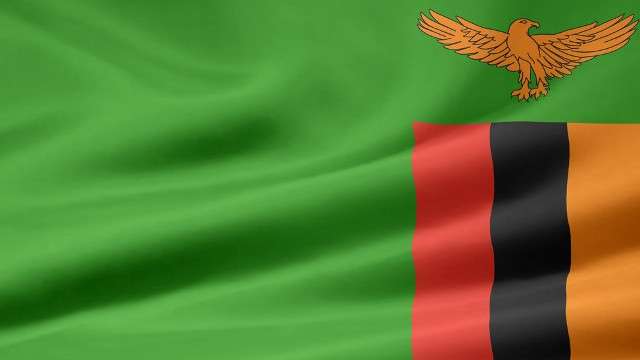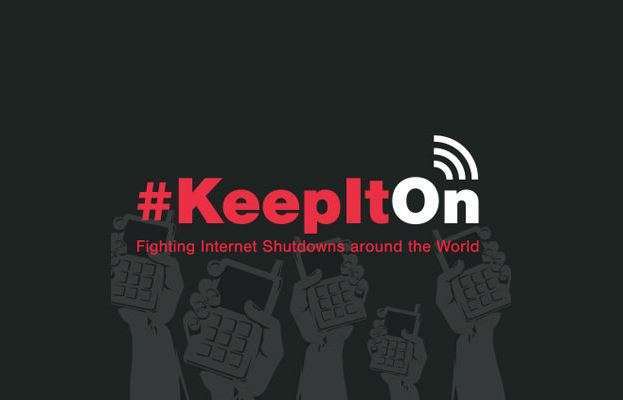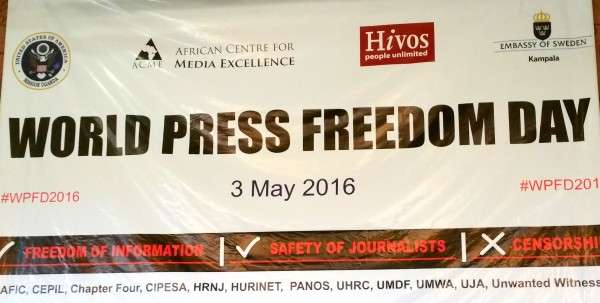By Mailyn Fidler |
Two years ago, the African Union (AU) adopted its Convention on Cybersecurity and Personal Data Protection. The Convention seeks to improve how African states address cybercrime, data protection, e-commerce, and cybersecurity. However, only eight of the AU’s fifty-four members have signed the Convention, with none ratifying it. Despite this currently limited uptake, the Convention, and how the AU produced it, signals that African states value political autonomy and independence when developing cyber policy. The U.S. government should keep this in mind as it reaches out to AU member states in promoting cyber norms and capacity building efforts.
Development of the Convention
The AU’s development of the Convention reflects a desire of African states to have autonomy over their response to cyberspace challenges. The AU chose to develop its own Convention instead of promoting African participation in existing cyber treaties, most notably the Council of Europe’s Budapest Convention on Cybercrime (2001). Only one African state, South Africa, participated in the Budapest Convention negotiations, and, even then, had to ask to be included. The Council of Europe approved three other African country requests to accede, a low rate compared to other regions in the global south, and only one African state has ratified it. South Africa has refused to ratify the Budapest Convention because of sovereignty concerns.
Instead, the AU began work on its own approach in 2007. By this time, African states had already started to act as a bloc in international cyber negotiations. For instance, African countries advocated for more equitable access to the Internet and participation in Internet governance during the 2003 and 2005 World Summit on the Information Society (WSIS) – a stance that challenged prevailing Western views.
Read the full article here.
Analysis of the Relationship Between Online Information Controls and Elections in Zambia
By Arthur Gwagwa |
The defining era in Zambia’s current rise in online political and civic activism can be traced back to the period between 2011 and 2013. This is when the late President Sata embraced social media as part of his political and public diplomacy strategy. As the country now prepares for the August 2016 General Elections, government, its agencies, such as the Election Ccommission of Zambia (ECZ), the opposition and civil society are all immersed in social media.
As the country’s August 2016 polls draw nearer, government has recently increased its presence on social media to abet and encourage horizontal flows of information. This is in contrast to vertical flows, where information generated by societal actors is gathered by the government through usage of a range of methods, ranging from “responsiveness” on social media to media monitoring.
This paper explores reports of information controls and filtering of the ruling regime, whose leader, Edgar Lungu, strives to balance the dictates of political survival and his reputation as a lawyer who has previously defended press freedoms. The paper analyses past and current key political events that implicate the relationship between internet-based information controls and elections in Zambia. Finally, the paper extrapolates likely scenarios in the build up to the 2016 General Elections and Constitution Bill of Rights Referendum to be held on 11 August 2016.
Read the full report here.
Pushing Back Against Internet Shutdowns
By Marylin Vernon |
Advancing human rights for the 3.2 billion users of the internet, of which two billion are from developing countries, needs a robust and systematic approach to ensure that the rights individuals enjoy offline are also applicable online. Indeed, debate on protecting online freedoms has taken centre stage as incidents of blockage of access of the internet and related platforms have increased in several countries around the world.
Reports of a recent internet shutdown in Algeria bring to 16, the number of countries affected by shutdowns documented in the first half of 2016. As many as 15 shutdowns were documented in 2015. Of the documented incidents, six occurred in African countries in 2015 and four have been reported this year.
In 2015, internet shutdowns occurred in Algeria, Burundi, Congo Brazzaville, the Democratic Republic of Congo (DRC), Niger, and Togo. Before last month’s shutdown in Algeria, Chad, Uganda, and Ethiopia had earlier this year experienced shutdowns. Meanwhile, other governments, such as Ghana, are considering a social media black-out during the November 2016 election period purportedly to curb abuse of social media.
Ahead of the presidential inauguration last May, Uganda’s Communications Commission (UCC) issued a directive to all telecom providers to shut down social media platforms citing security concerns. This directive saw major telcos, such as MTN Uganda, issuing statements of compliance, citing licensing regulations that dictate mandatory cooperation with government in the event of an emergency or on issues related to national security. Uganda is currently ranked as not free in the Freedom in the World report 2016.
Chad’s decision to shut down the internet and block SMS messaging for several days during the April 2016 election period raised concerns and criticism from the international community and political opposition, with many doubting the credibility of the electoral outcome that extended the 26-year rule of President Idriss Déby. The situation in Chad was reminiscent of the election periods in Congo and Ethiopia, in which social media and other file sharing platforms were blocked ahead of voting, or during civil and political unrest.
There has been widespread condemnation of these unwarranted actions that are often taken in the name of protecting national security, but which have far-reaching consequences for freedom of expression, privacy and the free flow of information. During RightsCon 2016, which took place in San Francisco, United States on March 30 to April 1, AccessNow launched the #KeepItOn campaign to push back on the use of internet shutdowns by governments worldwide. The campaign kicked off with crowdsourcing a definition of an internet shutdown based on numerous suggestions made by experts from Africa, Latin America, Europe, North America, and Asia.
The current working definition of an internet shutdown is: “An intentional disruption of internet or electronic communications, rendering them inaccessible or effectively unusable, for a specific population or within a location, often to exert control over the flow of information.”
Meanwhile, in order to mitigate the effects of internet shutdowns and advance user privacy and security as well as the work of human rights defenders and activists, AccessNow launched a digital security helpline. The Helpline comprises of a team of technologists with a dedicated 24 hour hotline to aid civil society actors with on-call access to rapid response and follow-up for digital security issues, support for securing technical infrastructure, and preventative advice ahead of anticipated attacks (e.g. the lead up to an election).
Globally, many states are party to international human rights treaties such as the Universal Declaration of Human Rights (UDHR), the International Covenant on Civil and Political Rights (ICCPR) which reinforces many of the rights articulated in the UDHR, and the African Charter on Human and Peoples Rights (ACHPR). However, some governments are yet to enact national laws that guarantee data protection and privacy, as well as transparency and accountability in surveillance practices and censorship.
Now more than ever, understanding by state and non-state actors of the obligation to uphold online freedoms is crucial. Efforts in capacity building for digital safety, awareness raising and advocacy require continued documentation of shutdowns, gathering and disseminating information and contributing to the ongoing global public discourse.
Join a global coalition of organisations in the #KeepItOn campaign by a taking a pledge of action, by telling people about the campaign and sharing relevant information.
Ugandan Artists, Journalists Decry Declining Freedom of Expression
By Ashnah Kalemera |
As the world celebrated World Press Freedom Day (WPFD), the media and artists in Uganda spoke in unison about declining levels of freedom of expression in the country. Media practitioners challenged the constitutionality of Uganda’s 20-year press law and the impartiality of the national media ombudsman. Meanwhile, artists cited a growing trend of self-censorship among their community due to a fear of backlash from the state.
Musician Robert Kyagulanyi a.ka. Bobi Wine, an outspoken proponent for free expression, explained that communicating social issues through music was both “exciting and annoying” to audiences. Kyagulanyi said over the years he had experienced backlashes for making songs critical of state authorities. In 2012, the Uganda Communications Commission (UCC) allegedly banned radio airplay of Kyagulanyi’s song which criticised the Kampala City Council Authority Executive Director. Earlier this year, there were reports that UCC had once again banned another of Kyagulanyi’s songs – this time with content related to elections. It could not be verified whether the commission indeed banned radio stations from playing the song titled Ddembe. The singer stated that state-owned media had on numerous occasions declined to play some of his music that criticised the government.
“Much as censorship does not come direct, we must acknowledge that it exists for artists,” said Kyagulanyi at an event in Kampala to mark WPFD.
Kyagulanyi’s sentiments were echoed by another prominent Ugandan musician, Irene Ntale, who said she and many others often found themselves “limited” to making commercial music that is “easily saleable and sustains livelihoods” and refraining from critical songs.
“If I want to sing about the political situation in Uganda, I am afraid. Am I going to get into trouble?” said Ntale. She added that other forms of her expression, such as the attire she wears while performing, were also under threat from the Anti-Pornography Act (2014). The Act outlaws the publication and consumption of real or simulated sexual activities, or representation of sexual parts of a person.
Uganda, like many other African countries, lacks a comprehensive legal framework to promote creative, artistic and cultural expression. The country has a national Culture Policy (2006) and ratified to the 2005 UNESCO Convention on the Protection and Promotion of the Diversity of Cultural Expression in 2015. However, protections are not guaranteed and there have been reports of abuse and infringements on artists’ rights when their work challenged political, religious and social norms. In 2012, screening of a Ugandan play titled “State of the Nation” was cancelled by the Media Council because of its subject matter of corruption and poor governance, while in 2013, Daniel Cecil, a British theatre producer, was deported from Uganda following work on a play that had a gay character.
Both Kyagulanyi and Ntale called for the media to offer more support to the creative sector when artists’ freedom of expression is under attack. However, the media itself is experiencing rising attacks, and the Press and Journalist Act (1995), which regulates the media, is “antithetic to media freedom and democracy”, according to Makerere University journalism lecturer Adolf Mbaine . He said the Media Council established under this law had led to “direct government control over what journalists can and can’t do”. This had contributed to an engrained fear among journalists and other actors on how to exercise their freedom of expression.
Mbaine also contended that freedom of the media was not a “professional right” and should therefore not be regulated. “Media belongs to everyone including the public through media,” he said.
Meanwhile, Peter Magellah of Chapter Four pointed out that there were no provisions in Uganda’s Press and Journalists Act relating to online publications and new media platforms. Under the Uganda Communications Act (2013), the Uganda Communications Commission (UCC) has the mandate to regulate telecommunications services including broadcast and online media. In February 2016, the UCC issued a statement calling for “professional and responsible behaviour among broadcasters and users of social media” during elections that were held the same month.
The chairman of the Uganda Law Society, Francis Gimara, called for more “legal challenges” to the 1995 law as well as other matters related to the rule of law with an impact on freedom of expression in Uganda. Other recommendations made included:
- Industry-led regulation of journalists with active stakeholder participation. This would, among others, advance increased accountability of the media on issues of ethical conduct.
- Media should become activists of press freedom and freedom of expression.
- Media should cover more societal issues that artists portray instead of tending to focus on the lifestyles of the artists.
- Increased documentation and reporting on violations of creative and artistic expression akin to documentation of violation of freedom of expression for journalists and activists.
The WPFD celebration was organised by the African Centre for Media Excellence (ACME) jointly with other partners. The dialogue explored the right to freedom of expression and the right to information through online and offline media as fundamental pillars of democracy.
Follow the online conversation on WPFD with the hashtags: #WPFD16 and #ThisIsFreedom
Is Tanzania Becoming an Internet Freedom Predator?
By Juliet Nanfuka |
Tanzania appears to be steadily sliding into a predator of critical social media users, as state authorities continue to arrest and prosecute users for expressing what many see as legitimate opinions. In recent months, the country’s newly elected government has used a controversial new law to prosecute at least seven social media users, in spite of constitutional guarantees of free speech.
Tanzanian netizens are falling foul of the Cybercrimes Act enacted last year, whose stated goal is “criminalizing offences related to computer systems and Information Communication Technologies”. The law has been used to charge citizens for “publication of false information” in accordance with Section 16 of the Act. It states: “Any person who publishes information or data, presented in a picture, text, symbol or any other form in a computer system knowing that such information or data is false, deceptive, misleading or inaccurate and with intent to defame, threaten, abuse, insult or otherwise deceive or mislead the public or councelling the commission of an offence, commits an offence, and shall on conviction be liable to a fine not less than five million shillings or to imprisonment for a term not less than three years or to both.“
On April 15, 2016 Isaac Habakuk Emily was appeared in court for the publication of false information using a computer system – in this instance Facebook. In a post, Emily referred to President Pombe Magufuli as an imbecile that could not be compared to the country’s founding leader, Julius Nyerere. He appeared in court for insulting the president after his post was reported to the Tanzania Communications Regulatory Authority (TCRA).
See report on State of Internet Freedom in Tanzania 2015
Since the Cybercrimes Act took effect last September, Tanzanian social media users have “gone a little quiet”, according to journalist Joseph Warungu. And for good reason, as Emily is not the first individual against whom the law has been used. In October 2015, Benedict Angelo Ngonyani was charged for “spreading misleading information” after he posted on Facebook that Tanzania’s Chief of Defence Forces, General Davis Mwamunyange, had been hospitalised following food poisoning. In the same month, Sospiter Jonas was charged for posting to Facebook content stating that Tanzanian Prime Minister Mizengo Pinda “will only become a gospel preacher.” The following month, four staff of an opposition party were charged for publishing “inaccurate” election results on Facebook and Twitter.
The stated objective of the Cybercrimes Act was to fight rising incidents of cybercrime such as bank fraud, mobile money theft, phishing attacks, website hacking and spoofing. However, even as it was being debated, human rights defenders warned that the government would use the law to suppress critical voices. As one activist stated, “We usually use various internet platforms to communicate our information—Twitter, Facebook, blogs, SMS, WhatsApp, etc. The use of all these forms will be rendered useless by the Act which in part criminalises transmission of any information deemed misleading, defamatory, false or inaccurate by the government.”
The Cybercrimes Act was reportedly passed in the middle of the night and has been criticised for disregarding press freedom and freedom of expression, granting excessive powers to police, and offering limited protections to ordinary citizens.
Clamping down on social media users is a trend that has been increasingly witnessed in East Africa and beyond. In Kenya, Section 29 of the Kenya Information and Communications Act (2013) has been used to charge up to 10 social media users for “the improper use of a telecommunication system” in 2016 alone. In Uganda, Section 25 of the Computer Misuse Act bears similar language and states, “Any person who willfully and repeatedly uses electronic communication to disturb or attempts to disturb the peace, quiet or right of privacy of any person with no purpose of legitimate communication whether or not a conversation ensues commits a misdemeanor.” In the lead up to the February 2016 general elections, a series of arrest were made which saw social media users charged using this law.
Further afield, South Africa’s Cybercrimes and Cybersecurity Bill (2014) also bears similar vague clauses that muzzle opinion of the media, bloggers and other independent actors that promote freedom of expression and increased state transparency. In Nigeria, the Frivolous Petitions Bill (2015), popularly known as the Social Media Bill, threatens to muzzle public expression online.
The Cybercrimes Act is one of several laws Tanzania enacted in the lead up to the October 2015 general elections despite public outcry that these laws granted excessive powers to the police criminalised expression and access to information, and did not provide clear legal recourse to citizens.
As affronts to citizens’ online rights in Tanzania and other countries continue, self-censorship is likely to prevail which in turn would have a negative impact on citizen participation, transparency and accountability in governance.
NB: Section 16 of the Cybercrimes Act 2015 has been adjusted to reflect the fine of not less than five million shillings or to imprisonment for a term not less than three years or to both.





